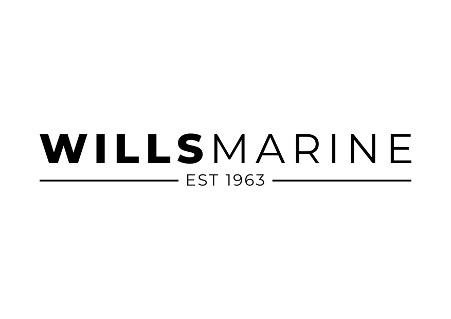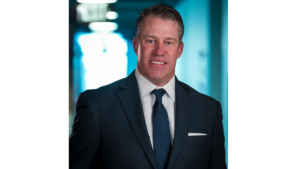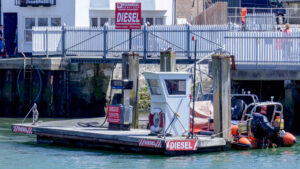Interview: Greenline Yachts on the growth of hybrid boats
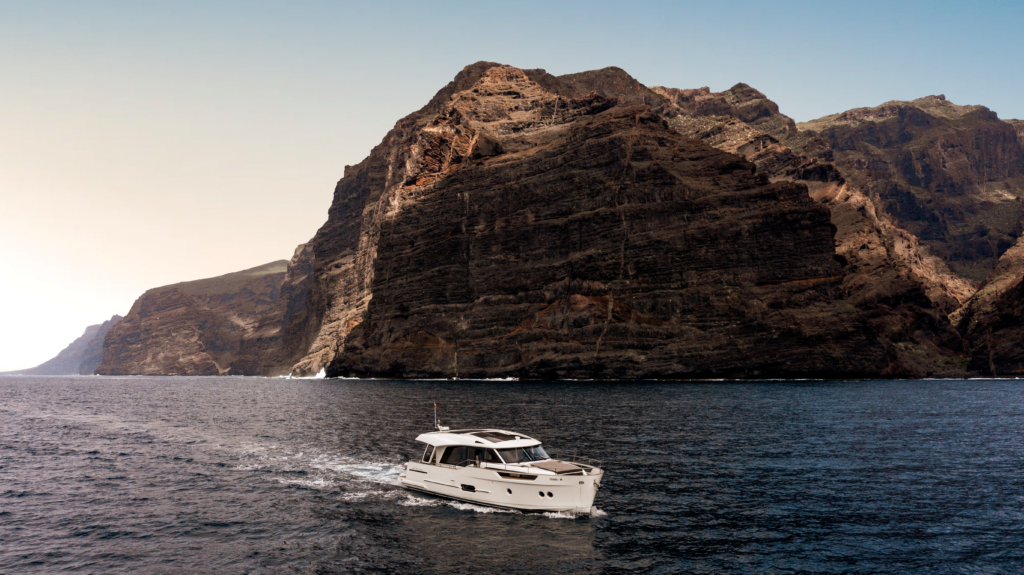
In 2008 Slovenian boatbuilder Greenline launched the Greenline 33, the first production hybrid boat. The 33ft family cruiser went on to win over 30 awards – including International Boat of the Year – and Greenline sold almost 500 units in more than 50 countries worldwide.
Since then, Greenline has launched a range of larger boats – the 58 Fly will make its world debut at Cannes Yachting Festival – and Greenline remains the only full range of yachts to be offered in hybrid and electric. In many ways, 2023/4 signals a period of transition for the brand and the Greenline 33 has been discontinued to make way for more large and mid size models.
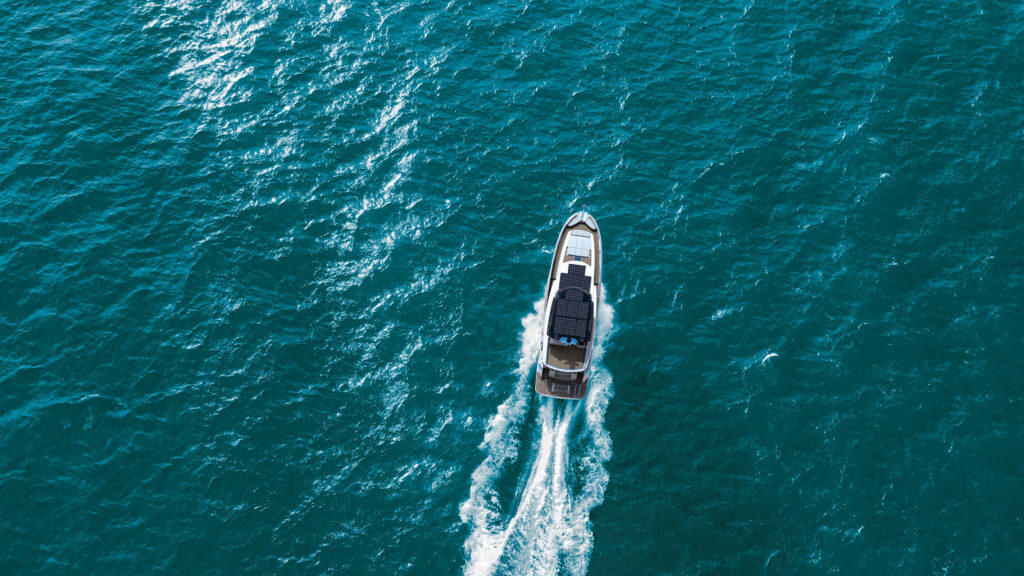
Luca Raumland, chief sales and marketing officer, says: “Our plan to introduce more models in the mid to larger size range is in answer to customer demand. We acknowledge that many boaters are seeking increased space, higher comfort, and additional features. By expanding our offerings, we’re ensuring that these boaters can find what they need within our range.”
With the demand for larger yachts, the builder is expanding production capacity, looking for a facility with access to the water. The firm has been searching for a coastal location site and identified potential sites in both Slovenia and Croatia. The project will start within the next 12 months.
Hybrid electric boats
While the company does not divulge the current split between hybrid and ICE boats it delivers, the team says there has been a positive shift towards the green side and in 2021 the builder reported that ‘every second yacht leaving the shipyard is equipped with hybrid propulsion’.
Matjaz Grm, Greenline CEO, says: “It’s fair to say there’s a noticeable shift towards hybrid/ electric boating. As consumer awareness and confidence in green technology rises, we’ve seen a considerable change in the order book mix, with a growing number of customers opting for hybrid and electric models.”
Grm continues: “People are becoming more conscious of their impact on the environment and seek solutions that align with their values. This increasing awareness creates favourable conditions for growth and adoption of sustainable boating practices.”
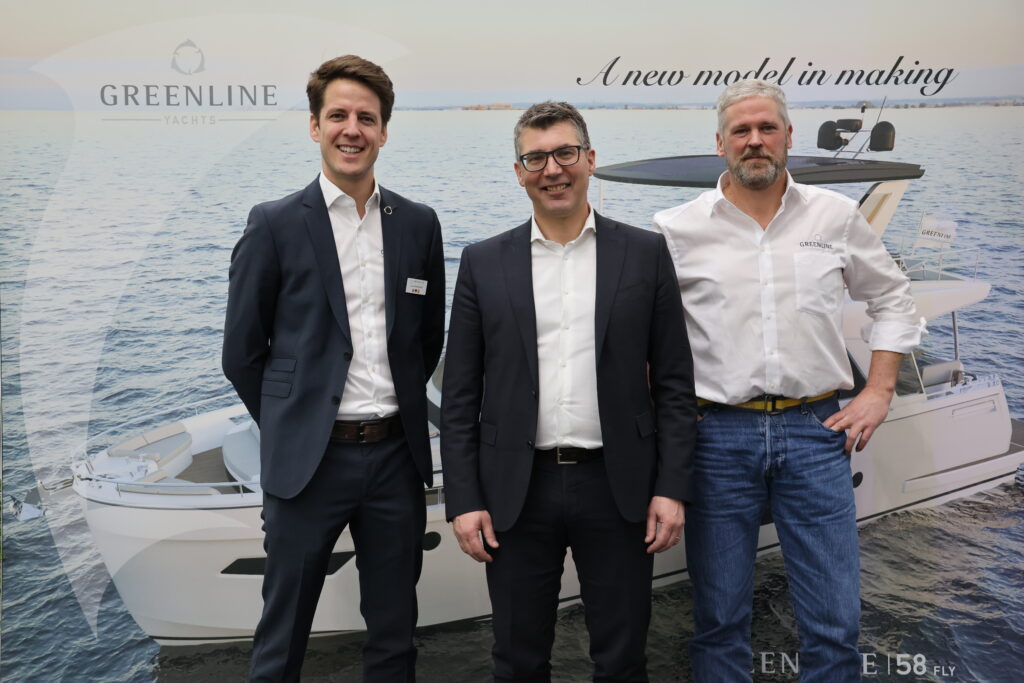
Raised awareness of the environmental impact of leisure marine is opening up the conversation. “We are witnessing a rising trend in the nautical industry with the emergence of numerous startups introducing electric day runners, wakeboard boats, and similar offerings,” says Raumland. “The entry of more brands into the realm of alternative propulsion serves as a positive development for us.”
Pictured left: Greenline’s Luca Raumland, Matjaz Grm and COO Peter Meyer.
Raumland continues: “Previously, we faced the challenge of promoting our beliefs and ideas on our own, but now we have allies. The shift towards alternative propulsion is gaining momentum and we are excited about the possibilities for faster progress in alternative propulsion systems. Interestingly, the recent introduction of a new hybrid system by Beneteau Group and Volvo has garnered attention, although it has stated that it won’t be available in the market until 2025.”
Learning from the electric car market
Vladimir Zinchenko, Greenline owner and advisory board member, notes that the influence of the electric vehicle market is also important in building customer adoption: “As hybrid propulsion becomes more of a norm in the automotive industry, we see that more customers are choosing hybrid for their leisure boats too. Trust in this propulsion system is growing.”
The team at Greenline believes the marine industry has much to learn from the automotive industry’s vast investment in electrification. Innovations in battery efficiency and technology could also have a significant impact on the marine sector and a positive trickle-down. Zinchenko adds: “It’s essential to learn from the automotive industry’s experiences in consumer education, dealer training, and infrastructure development. The adoption of electric and hybrid propulsion systems in boating is gaining momentum, but the current rate of infrastructural development in marinas and service centres needs to keep up. Investments in high-speed charging infrastructure are crucial to meet this increasing demand and provide efficient and convenient solutions for our customers.”
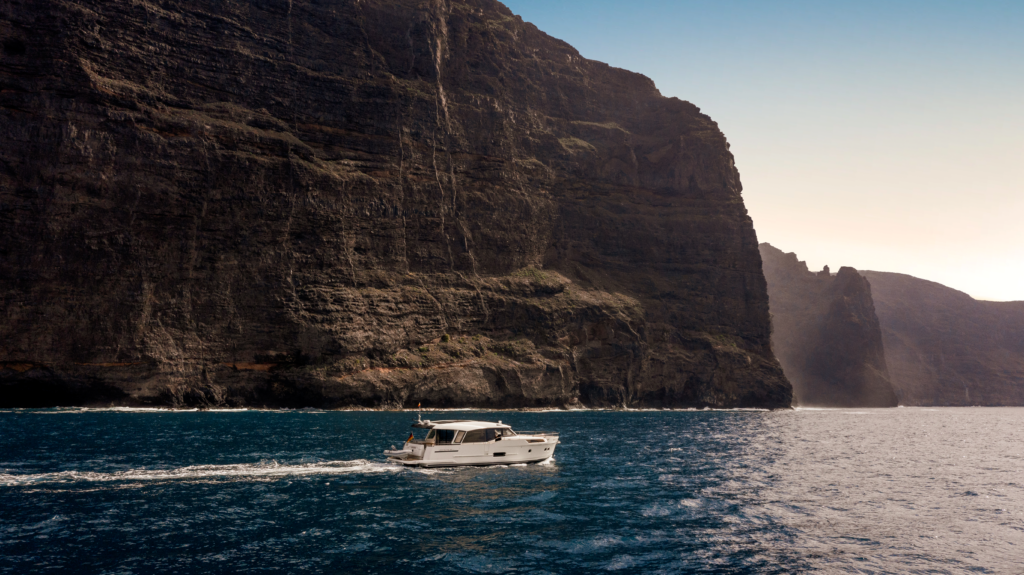
Lithium-ion batteries
While the hybrid and zero-emission movement is gaining momentum, some in the industry have raised issues with the processes involved in battery production, namely whether they’re as harmful to the environment as the fossil fuels they seek to replace. Raumland counters that consumers need to think of the long-term benefits. “While it’s true that lithium ion battery production has an environmental footprint, it’s important to consider the entire life cycle of the product,” says Raumland. “For example, an electric car with limited usage may take several years to offset the initial CO2 impact from battery production. On the other hand, a yacht that frequently relies on diesel generators and engines can significantly reduce its CO2 emissions within the first year by incorporating batteries for domestic appliances and partial propulsion.”
Greenline says the environmental impact of batteries versus fossil fuels depends on the specific use case. Additionally, Raumland points to advancements being made in battery technology and production efficiency, which are “expected to decrease emissions associated with lithium-ion battery production over time.”
Supply, costs and labour
There is currently a significant premium for customers to pay for a hybrid boat and motivating consumers to buy into the agenda is a challenge for all brands. Like the EV market, Greenline is taking a ‘way of life’ approach. “Our primary selling point is not just the hybrid technology but the overall value proposition we offer,” says Raumland. “Greenline Yachts are designed for comfort, beauty, and spaciousness. While the hybrid aspect may come at a premium, we believe the longerterm benefits such as reduced fuel costs, lower maintenance, and the environmental impact make it a worthy investment. The appeal of our yachts extends beyond just the technology; it’s about a complete, more sustainable, and comfortable boating experience.”
Zinchenko adds: “It is clear that the desire for hybrid/electric boating is on the rise globally. Many of our customers are increasingly conscious about the environment and are seeking more sustainable alternatives.”
Reflecting the wider marine industry, supply chain issues for Greenline have subsided in 2023. Grm explains that the supply chain situation has largely stabilised, with most components readily available. However, there are still occasional challenges with specific parts that rely on the supply of semiconductor chips.
“While these instances can pose minor hurdles, they do not significantly impact overall production. The primary challenge in manufacturing lies in managing labour costs and addressing human resource issues,” says Grm. “Rising inflation and increasing salaries have led to a notable increase in labour expenses,” he says. “Moreover, sourcing an adequate labour force has become a more substantial obstacle. The focus now is on finding skilled workers and managing the associated costs, which continue to be significant concerns in the manufacturing process.”
Green boating
Zinchenko highlights the development of Greenline’s 6G hybrid system as its most significant technological leap forward in recent years. “We’re incredibly excited about our forthcoming models. The 6G hybrid advanced system offers boaters more possibilities than any other system currently available in the market for boats of this kind.”
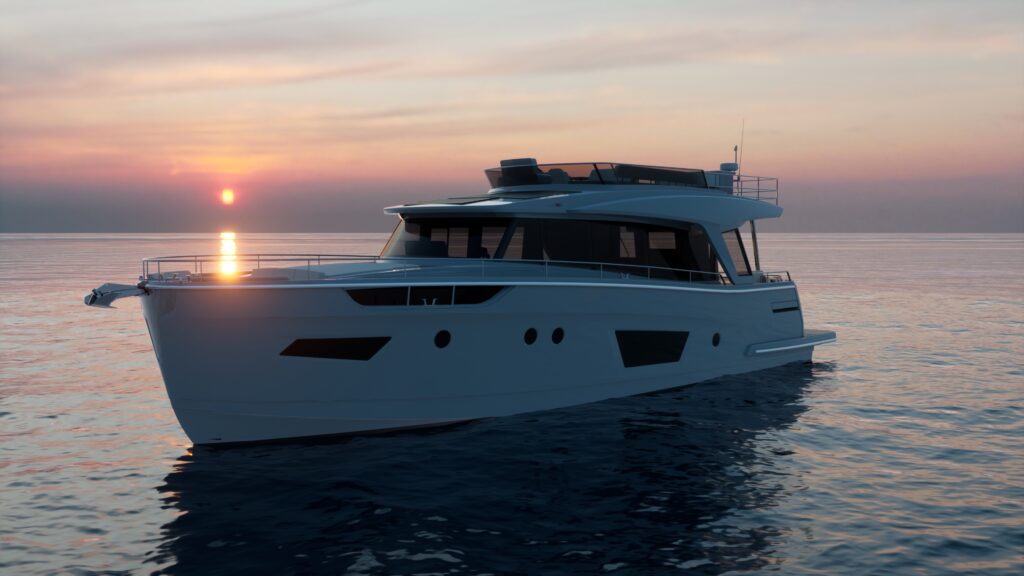
Interest is positive but range anxiety still plays a part in the consumer transition to eco boating. “While our products are at the forefront of the hybrid/electric propulsion movement,” says Grm. “The range expectation for purely electric power can sometimes be perceived as a limitation. However, we see this as a challenge rather than a constraint. With the rapid advancements in battery technology and solar panel efficiency, we believe that the future is bright for enhanced range in electric and hybrid boats.”
As with the majority of manufacturers, more attention is also turning to reducing the environmental impact on the manufacturing side of the business, as much as the end products. Raumland explains: “Of course, our yachts are still made of plastic and production in a sustainable way is hard to achieve in such a small company. We recycle foam core and foam structure and make it into insulation for construction. While creating our furniture we recycle the sawdust into heating pallets and give them to the local kindergarten. We are also doing tests with bio-resin and flex fibres to hopefully roll out in 2024.” Greenline no longer prints brochures and has opted to digitalise a lot of owner documents. The boatbuilder is also in the process of calculating its carbon footprint and plans to set new goals of how to minimise this further.
When Greenline entered the boatbuilding sector, it was one of the few boatbuilders at the time spearheading hybrid technology. Well over a decade later, Zinchenko reflects on the market evolution and the work left to do: “If there’s one thing we’d like to change in the marine industry, it’s the rate of adoption of sustainable technologies,” he says. “The boating industry has a responsibility towards environmental conservation. Thus, we advocate for quicker adoption of sustainable practices that reduce environmental impact. This change should also include an accelerated incorporation of innovations from the automotive sector, particularly those relating to electric and hybrid technology. By fostering a closer collaboration with the automotive industry, the boating sector could benefit from rapid advances and contribute more effectively to a sustainable future.”


